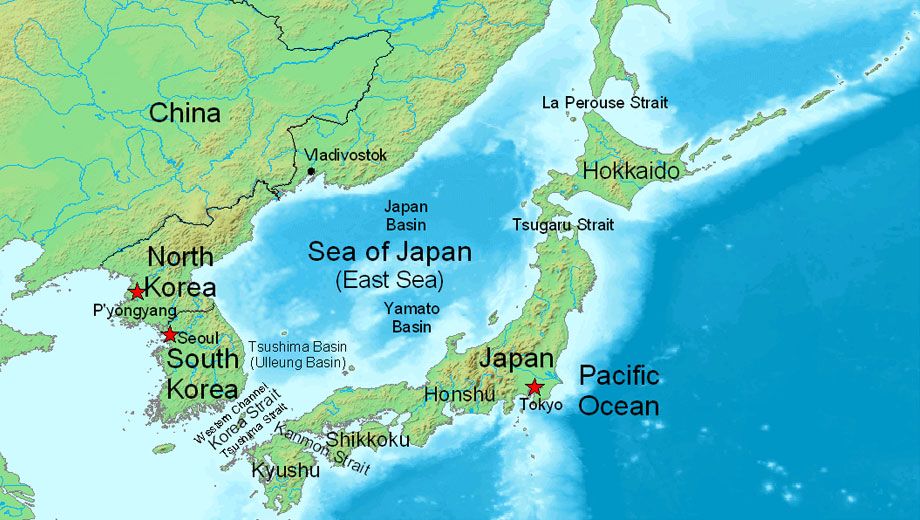Earthquake, tsunami, volcano effects continue to disrupt Japan travel

Earthquake and tsunami damage, a nuclear crisis, the ash cloud from an erupting volcano, severe flight disruption and government advisories to avoid numerous areas of Japan mean that business travellers should be watching the situation carefully and considering their need to travel.
Tokyo's Narita Airport (NRT), 60 km east of the city on the coast of Chiba Prefecture is "gradually returning to normal", according to a spokesman. Tokyo Haneda (HND), a smaller airport closer to the city centre (and further away from the epicentre of last Friday's earthquake) is further along the path to normal operations.
However, travellers should anticipate significant delays, disruption and potential danger as aftershocks remain predicted, the Shinmoedake volcano continues to erupt, and the situation at the Fukushima nuclear power plants is still unstable.
Expect flight delays, diversions and cancellations
Qantas and Jetstar flights are operating as normal, although both airlines are recommending allowing extra time to get to and from Japanese airports, especially Narita. Other airlines, however, are being more cautious.
Air China, flag carrier of the People's Republic, and Taiwan-based EVA Air have cancelled some flights to Tokyo and Sapporo. Speaking to AFP, Air China spokeswoman Zhu Mei said: "The cancelled fights were those scheduled to stay one night at Japan airports. The planes could face danger in the event of aftershocks."
Thai Airways has also decided to turn its planes around faster in Japan, with flight crew no longer spending the night in Tokyo.
Lufthansa and Austrian Airlines are also putting its crew elsewhere overnight -- in Korea, while Swiss is making an extra stop in Hong Kong.
Lufthansa has diverted its Tokyo flights to Nagoya and Osaka, hundreds of kilometres to the west of Japan's capital. The airline has also pulled its flagship Airbus A380 from service to Japan, as has French carrier Air France.
Lufthansa is scanning aircraft for radiation as they return from Tokyo, while Kuala Lumpur international airport in Malaysia is screening passengers arriving from Japan for radiation.
The Shinmoedake volcano ash cloud continues
A major potential for disruption, the Shinmoedake volcano on Japan's southern Kyushu island continues to erupt.
The ash plume from the volcano lies right in the path of international flights in the busy northeast Asian region, and may affect flights to Korea, China and Russia. The regular route from southern China and southeast Asia to western North America also passes through the affected area.
Check with your airline -- and perhaps check again
At times of extensive disruption, it's vital to check with your airline -- not least because the airline might well be looking to sell your seat to someone else desperate to get into or out of Japan. That's good news for them, but bad news for you if you get bumped off the flight.
Ring the airline -- and be prepared for a wait -- to confirm that your flight is operating, and be prepared to rebook. Direct flights may well be booked solid, so consider potential connections and refer to our guide to getting to Japan via Korea, Hong Kong, China and Taiwan.
Given the uncertainty, it may be wise to play "call centre bingo" -- getting information and then ringing straight back to confirm -- to make sure that an ill-informed or stressed call centre worker hasn't given you the wrong information.
Make sure your insurance will cover your journey
Governments around the world are recommending against travel to various areas of Japan -- and, in some cases, the entire country.
Australia's Smartraveller advice, provided by the Department of Foreign Affairs and Trade (DFAT) is to "reconsider your need to travel to Chiba, Fukushima, Aomori, Iwate and Ibaraki Prefectures and surrounding districts until further notice due to the disruption to essential services caused by the earthquake that affected the area on 11 March 2011".
Business travellers probably don't need to be told twice to stay as far as possible away from the crisis-hit area around the Fukushima nuclear plants.
But Chiba prefecture -- also on DFAT's "no go" area -- includes Tokyo's Narita Airport. Insurance companies in Australia will therefore almost certainly refuse to pay out claims arising for disrupted travel through Narita.
Expect delays on the ground too
The continuing crisis at the Fukushima nuclear power plants has a knock-on effect for Japanese transport. Almost the entire rail network is electrically powered, and schedules have been cut back across the country to reduce energy consumption.
Metros, subways and local trains are running on reduced timetables, as are long-distance trains, Shinkansen bullet trains and airport express trains.
Roads and highways are consequently very busy, with bus services reportedly experiencing heavy delays in the traffic. Some roads, particularly to the east of Tokyo, have been damaged by the earthquake.
21 Oct 2015
Total posts 2
Haneda is bigger than Narita.
Hi Guest, join in the discussion on Earthquake, tsunami, volcano effects continue to disrupt Japan travel